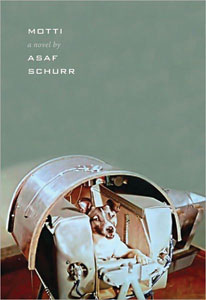Letters to the Editor
Obama truly supports Israel
President Barak Obama is a friend of Israel. His actions and his words demonstrate this support clearly. In an address to the United Nations, our president told the delegates of the world body that “Israel’s existence must not be a subject for debate” and that “efforts to chip away at Israel’s legitimacy will only be met by the unshakeable opposition of the United States.” The Obama administration succeeded in pushing through the toughest set of sanctions against Iran ever enacted by the U.N. Security Council and cast its only veto in the U.N. Security Council against the biased anti-Israel resolution on settlements. In a speech — described by the Israeli newspaper Yediot Aharonot as the most pro-Israel speech ever given by an American President at the U.N. — President Obama told the world that “Israel deserves recognition and normal relations with its neighbors.” The Obama administration continues to support increasing levels of foreign aid to Israel, despite some Republicans supporting cuts in this funding. These are just a few examples that show President Obama is a supporter of Israel.
But you wouldn’t know it if you read Shoula Romano-Horing’s column in last week’s Jewish Chronicle entitled “Obama’s double talk about Israel.” She suggests people consider not voting for President Obama because he is not a friend of Israel. But the article ignores the President’s record on the Jewish state, demonstrated above.
The conflict between Israel and the Palestinians is complicated. The Obama administration, as well as previous administrations, has tried to bring the two sides together, which often requires putting pressure on the two parties. For example, in 2004 the Bush administration neglected to veto a U.N. Security Council resolution calling on Israel to stop demolishing Palestinian homes. The Reagan administration supported a U.N. Security Council resolution condemning Israel for its 1981 attack on Iraq’s nuclear reactor.
A second article in the Nov. 24 issue of the Jewish Chronicle entitled “Jonathan Pollard enters 27th year in prison” focuses on a quote from Vice President Biden that discourages President Obama from considering clemency for Pollard. Once again, the article heaps a good deal of criticism on President Obama and his administration. But it fails to answer an obvious question: Why didn’t President George W. Bush pardon Pollard on his way out of office?
I believe that Jewish Chronicle readers are sophisticated enough to understand the complexity of Middle East politics. Most of us want to see peace between Israel and their neighbors. We know that President Obama and his administration support Israel. We also care about the many domestic issues that are important to members of our Jewish community: the economy, immigration reform and potential cuts in social services for our unemployed, seniors and disadvantaged citizens.
Alan Edelman
Leawood, Kan.
Kansas filled with unknown Jewish history
Thank you for picking up the Leavenworth story about the Jewish American Society for Historic Preservation’s (Jashp) efforts to historically mark the site of the first permanent Jewish house of worship in Kansas. (Nov. 24 edition) http://www.kcjc.com/index.php?option=com_content&view=article&id=799:listening-post&catid=1:latest-news&Itemid=27
We have a small clarification to the article. The B’Nai Jeshurun building (1918) is an architectural gem and is still standing. (The first building was dedicated in 1864.) B’Nai Jeshurun was converted, pardon the pun, into the Temple Apartments in the 1970s after the synagogue community folded. The present owner went to great lengths to preserve the historical and architectural integrity of the structure.
We are working with the Leavenworth County Historical Society to place a historical interpretive marker at the site (6th and Osage Streets, Leavenworth). Jashp has completed Jewish historical marker projects in 23 states and in four countries. More than 5 million people a year see and learn a little bit about American Jewish historical legitimacy from the various markers.
We recently did a marker project in Kansas City at the National World War I Museum at Liberty Memorial. The effort, a simple brick in the Walk of Honor, is intended to bring visitor awareness to the Jewish American fighting man and Jewish American support for the WWI effort. We want the word “Jewish” to be very visible to help affirm in visitors’ minds that Jews fought in WWI as well. Too many anti-Semitic canards exist that we were shirkers, did not participate in the building of this great country or sacrifice for it.
We have purchased a brick in the Walk of Honor in the name of Nathan Golden, JWV, which will be dedicated next year. Nathan was a WWI Jewish American vet. He was also a friend. It would be great if more American Jews would add their family names with the designations, JWV-Jewish War Veteran to the Walk of Honor. Few people understand that almost 6 percent of the American Expeditionary Forces were Jews. We served at more than twice what our proportional representation of Jews was in the general population of America at the time. The Museum states clearly that Blacks served disproportionally, but does not give the same dignified representation to Jews. http://www.jewish-american-society-for-historic-preservation.org/completedprgms1/kansascitywwimuseum.html
You have quite an unknown and un-popularized Jewish history in Kansas. Jashp is looking into placing other Jewish historical markers in the state. We are also beginning to work on getting National Registry of Historical Places designations for the synagogue and the Jewish cemetery in Leavenworth — dating from 1860. In Salina, we are working with the Smoky Hills Museum to see about a historical interpretive marker, at or near, the home of August Bondi. Christians have been also been helpful, approaching me about forgotten Jewish cemeteries that need identification. For instance we now know of a Jewish cemetery located at Fort Scott, Kan.
Jerry Klinger
President
Jewish American Society for Historic Preservation
www.Jashp.org



 It is difficult to place into a neat and tidy box custard-meister Jim Sheridan’s relatively novel restaurant concept Unforked (7337 W. 119th St., Overland Park, Kan. 66213). Is it a health food place? There is a salad premised wholly upon kale, after all. A Mexican joint? So much, it seems, is served within the confines of a taco (or quesadilla). For years, Sheridan dazzled us with dessert. We waited in long lines outside, enduring blistering heat and other elements, for delicious custard strewn with fruits, candies and various other mix-ins. With Unforked, however, Sheridan is reeling us in by simply making good food, fresh, with seasonal and/or local ingredients (to the extent possible).
It is difficult to place into a neat and tidy box custard-meister Jim Sheridan’s relatively novel restaurant concept Unforked (7337 W. 119th St., Overland Park, Kan. 66213). Is it a health food place? There is a salad premised wholly upon kale, after all. A Mexican joint? So much, it seems, is served within the confines of a taco (or quesadilla). For years, Sheridan dazzled us with dessert. We waited in long lines outside, enduring blistering heat and other elements, for delicious custard strewn with fruits, candies and various other mix-ins. With Unforked, however, Sheridan is reeling us in by simply making good food, fresh, with seasonal and/or local ingredients (to the extent possible). Two new novels by Israeli authors have recently been published in the Dalkey Archive Press Hebrew Literature Series. The first, “Motti” by Asaf Schurr is a low-key tale of a stereotypical loser. Motti, an elementary school teacher, lives alone with his dog, Laika. The only excitement in his life comes from his daydreams about falling in love with his neighbor and his regular Wednesday night outings with his friend Menachem. Menachem, on the other hand, is a boisterous drinker with a wife and two children. When, on the way home from the café, Menachem hits and kills a woman, Motti doesn’t think twice about claiming responsibility for the accident. After all, Menachem has a family to support. Motti has nothing.
Two new novels by Israeli authors have recently been published in the Dalkey Archive Press Hebrew Literature Series. The first, “Motti” by Asaf Schurr is a low-key tale of a stereotypical loser. Motti, an elementary school teacher, lives alone with his dog, Laika. The only excitement in his life comes from his daydreams about falling in love with his neighbor and his regular Wednesday night outings with his friend Menachem. Menachem, on the other hand, is a boisterous drinker with a wife and two children. When, on the way home from the café, Menachem hits and kills a woman, Motti doesn’t think twice about claiming responsibility for the accident. After all, Menachem has a family to support. Motti has nothing. In Gabriela Avigur-Rotem’s “Heatwave and Crazy Birds,” a not-so-young woman is returning to Israel more than 25 years after she ran away. Loya Kaplan has inherited from her father’s colleague and friend the house in which she grew up. And it appears that most of her school friends are still living in the same neighborhood — some married, some divorced, and all curious about where she has been for 25 years. As the novel unfolds, the reader learns of Loya’s complicated relationships with her father, his friend Davidi, and Davidi’s son Nahum.
In Gabriela Avigur-Rotem’s “Heatwave and Crazy Birds,” a not-so-young woman is returning to Israel more than 25 years after she ran away. Loya Kaplan has inherited from her father’s colleague and friend the house in which she grew up. And it appears that most of her school friends are still living in the same neighborhood — some married, some divorced, and all curious about where she has been for 25 years. As the novel unfolds, the reader learns of Loya’s complicated relationships with her father, his friend Davidi, and Davidi’s son Nahum. Imagine one morning you and your family are awakened by shouts and screams. Then suddenly, the police break into your house. They start breaking the china, destroying the furniture and shattering windows while showing great satisfaction in their destruction. Then you and your family are told to get dressed and are taken to the police station for no apparent reason. On the way, you see your synagogue in flames and your neighbors throwing rocks at it.
Imagine one morning you and your family are awakened by shouts and screams. Then suddenly, the police break into your house. They start breaking the china, destroying the furniture and shattering windows while showing great satisfaction in their destruction. Then you and your family are told to get dressed and are taken to the police station for no apparent reason. On the way, you see your synagogue in flames and your neighbors throwing rocks at it.